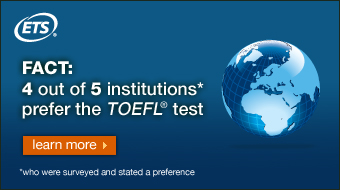
| IIE Home | Membership | Publications | Open Doors | Contact Us |
| Connect with Us |
Archives |
The European Commission Shares Lessons Learned from Erasmus Mundus According to the Academic Cooperation Association (ACA) newsletter, the European Commission has made available two reports about the Erasmus Mundus Programme (EM). One of the reports, entitled Experience and Lessons Learnt from the First Generation of EMMC, presents the analysis of 36 individual assessments of final reports submitted by first generation Erasmus Mundus Master Courses (EMMC), selected in 2004 and 2005. The other one is a survey report of the combined Cluster on Sustainability and Recognition of Degrees and Joint Degrees project. Drawing on the experience of previous EM projects, both reports aim to identify existing good practices, as well as difficulties faced by EM study program.
Examples of best practices presented in the first report cover areas such as program management, quality assurance, engagement of external actors, promotion and recruitment, and funding. Apart from best practices, it also challenges some myths such as "the more partners the merrier." Both reports conclude that much work is needed to improve the recognition of EM degrees. Despite the reputation of the Erasmus Mundus Programme, there is no such a thing as an "Erasmus Mundus Degree" awarded by a centralized "authoritative" body. Differences in national legislations, institutional administrative regulations, and in academic "scoring cultures" have prevented the award of joint degrees for 19 out of the 36 first-generation EM consortia.
For more information, please click here.
To download Experience and Lessons Learnt from the First Generation of EMMC, please click here.
To download European Commission: Survey Report—Cluster on Sustainability and Recognition of Degrees and Joint Degrees, please click here.
|
| www.iie.org/iienetwork • Member website of the Institute of International Education © 2025 Institute of International Education. All rights reserved. |


